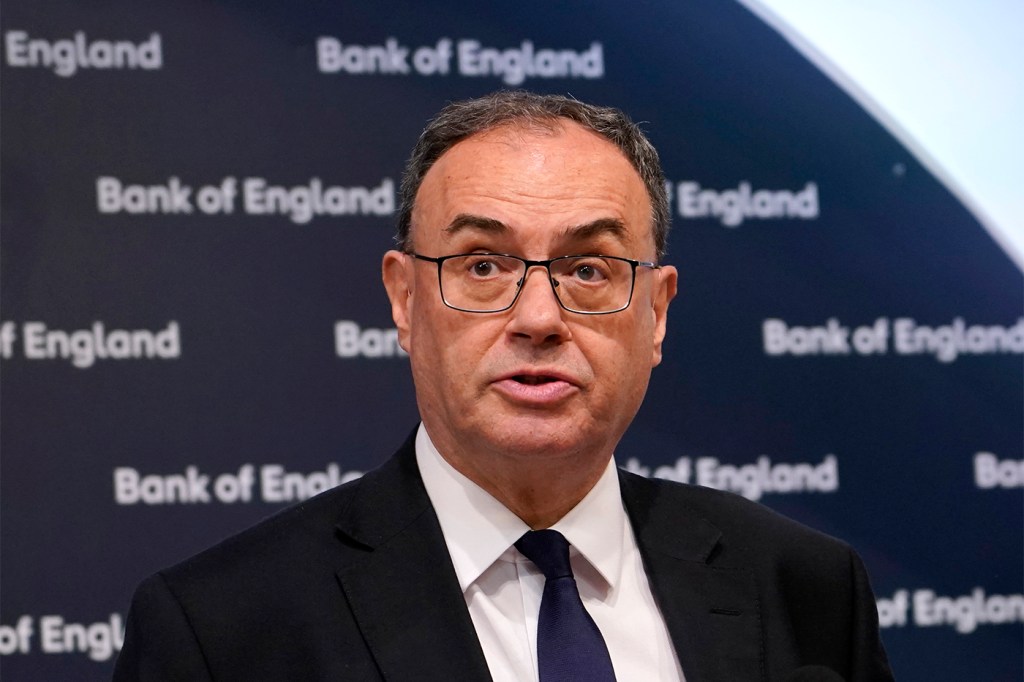The Bank of England has cut interest rates for the first time in four years. Is the end to the cost of living crisis in sight?
Northeastern economist Marianna Koli explains what factors will have influenced the rates decision and what it means for mortgage holders and savers.

LONDON — After the coronavirus pandemic hit, the Bank of England hiked interest rates on 14 separate occasions.
The cumulative effect, taking it from 0.1% in March 2020 to 5.25% by August last year, meant interest rates stood almost as high as they had during the 2008 global financial crisis.
Those decisions were taken in an effort to calm inflation, with it peaking at 11.1% in October 2022 — a 40-year high — as the war in Ukraine and the impact of COVID-19 fueled price hikes.

But inflation has since fallen to 2% — the Bank of England’s target figure.
On Thursday, the Bank’s Monetary Policy Committee (MPC), which sets the national interest rate, responded to the reality of low inflation by voting narrowly — five votes to four — to bring down the headline rate by 0.25%. It is the first time they have agreed to a cut in four years.
Meanwhile, the Federal Reserve in the United States on Wednesday chose to keep the same interest rates. However, Fed Chairman Jerome Powell said the rates may be cut in September.
The base rate set by the Bank of England determines the interest rate it pays to commercial banks that hold money with it. That then influences the rates those banks charge customers to borrow money or pay on their savings.
Marianna Koli, an associate professor in economics at Northeastern University in London, explains what factors will have influenced the decision to reduce rates and analyzes whether it is a signal that the cost of living crisis could be coming to an end.
What factors will have been behind the Monetary Policy Committee’s decision to cut the interest rate to 5%?
Inflation would have really been the major factor because it so closely interacts with interest rates.
The nine members would have considered things like the impact of the cost of living crisis on households — so what this would do to savings, what it would do for mortgages and the impact high inflation has on everybody, which is generally bad for the standard of living.
The committee is trying not to take us back to where we were a couple of years ago in terms of soaring inflation, while simultaneously trying to reduce the cost of borrowing. When you reduce the cost of borrowing, you make it easier, for example, for businesses to borrow, who can then employ people and so on — so there is a positive knock on effect from making borrowing more affordable.
Why do you think the Monetary Committee Policy vote was so tight, with a majority of only one?
I think part of the reason why it would have been a split vote is because there is still some concern over inflation beyond the headline figure that affects the prices of the basket of goods that households might buy.
Service sector inflation has been a concern previously and with fuel inflation in particular, there are some concerns that when we get to winter, the price of fuel might go up again. So there is a worry that, overall, different measures of inflation might increase because of that potential fuel price rise.
Some of the members do not seem convinced that inflation is just constantly on the way down and that I think is where those differences of opinion come from.
Featured Posts
What does this interest rate cut mean for homeowners with mortgages?
In the U.K., most mortgages are on fixed-rate deals. If most people were on tracker rates that follow the Bank of England’s base rate of interest, then this would have an immediate impact — they would immediately feel the benefit in their pocket.
In the U.K. though, most mortgage holders won’t see any benefit immediately. If someone remortgaged or took out a mortgage two years ago and they took it on a five-year deal, then they have another three years to go.
It is only really going to have a fairly immediate impact on people who are currently in the process of trying to take out a mortgage and might now get a better rate or for the minority who are on tracker rates.
But it might be a relief to people who are expecting to remortgage in a few years’ time. By the time they have to lock in their new rate, interest rates might have dropped even further.
Will savers be worse off after the interest rate decision?
Yes, savers will be slightly worse off because banks are likely to reduce the interest rates that are available on savings accounts. However, that is going to happen gradually.
And what I would say, in terms of the average saver in the U.K. — who in this country has about £10,000 in savings — we are talking about them maybe being a couple of hundred pounds a year worse off.
But while they might lose out on that interest income, they will gain from not having inflation at 10%. So in the grand scheme of things, they will still be better off.
Is the Bank of England’s decision a sign that the cost of living crisis is coming to an end?
It is a positive sign that the economy is not as unwell as it has been since the pandemic. It will improve conditions for some households.
But we have to remember that not everyone is a mortgage holder. Rents are high in many places and housing is one of the biggest drivers of the cost of living crisis at the moment. Public sector pay is also an issue in the news at the moment — that has lagged behind inflation and private sector pay growth.
But this rate cut is certainly good news in terms of being able to borrow money.
Bank of England governor Andrew Bailey said it needs to ‘be careful not to cut interest rates too quickly.’ Why is that?
When something completely unexpected happens, you can spook investors. That is why they are being conservative about this.
And that is quite normal behavior, because central banks are trying to maintain stability.
They will be reviewing this every six weeks. The reaction to this change will potentially determine what they do next. If, for example, lots of people suddenly go out and spend lots of money because borrowing is now cheaper, then they might say, ‘Actually, no we are not going to make a further cut because we underestimated the reaction to this, so we are going to keep it where it is.’
For every action, there is a reaction and then that reaction informs the next decision.











